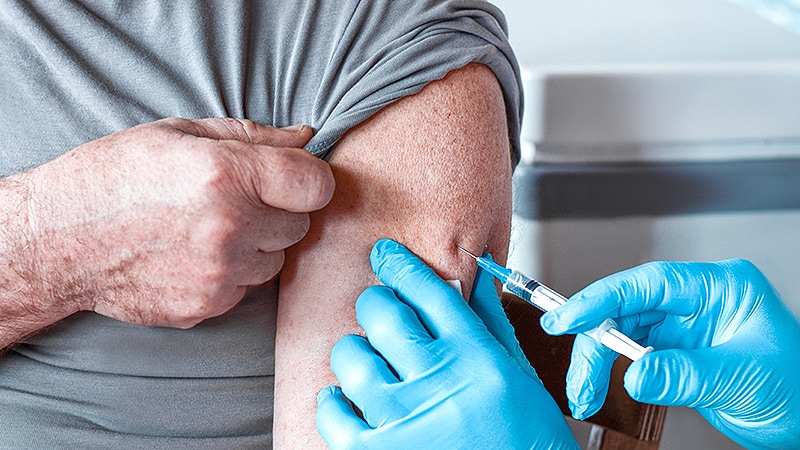Primary Care Clinicians and COVID-19 Prevention Challenges
Core Concepts
Primary care clinicians faced challenges in COVID-19 prevention due to exclusion from the federal vaccine strategy, impacting patient care and vaccination rates.
Abstract
The content discusses the challenges primary care clinicians faced in COVID-19 prevention due to their exclusion from the federal vaccine strategy. It highlights the impact on patient care, vaccination rates, and the importance of involving primary care in vaccine distribution.
Primary care clinicians are preparing to distribute the new COVID-19 booster.
They were sidelined during the pandemic, affecting their ability to provide vaccines and reminders to patients.
A study revealed that many primary care practices lacked records of COVID-19 vaccinations for patients.
The exclusion of primary care clinicians from the federal vaccine strategy hindered vaccination efforts.
Primary care clinicians faced roadblocks in becoming vaccine providers, impacting their ability to vaccinate patients effectively.
The involvement of primary care in vaccine distribution is crucial for boosting vaccination rates.
Primary care clinicians play a significant role in educating patients about COVID-19 and providing preventive care.
Back in Business: Primary Care and COVID-19 Prevention
Stats
With COVID-19 hospitalizations up by 22% and deaths up by 8% as of August 12, primary care clinicians are readying to distribute the new COVID-19 booster that is expected to arrive in September.
A study published in Health Affairs in August confirmed that primary care practices were not included in the federal vaccine strategy.
More than 20,000 primary care clinicians applied to distribute vaccines to patients as of April 2021, according to the Centers for Disease Control and Prevention (CDC).
Quotes
"The role of primary care is educating people about COVID-19, testing for COVID-19 and other infections, providing access to vaccines and treatment, and sustaining our healthcare system to provide care, fight disease, and save lives." - David Cutler, MD
"I do believe if PCPs had earlier access to the vaccine, we could have done a better job vaccinating more people." - Ann Greiner, MCP
"A vaccine is not just a vaccine: It's an opportunity to have a conversation between a primary care physician and a patient about other health issues, and it encultures people to get important preventive care." - Ann Greiner
Key Insights Distilled From
by Lisa M. Basi... at www.medscape.com 08-24-2023
https://www.medscape.com/viewarticle/995796
Deeper Inquiries
How can the involvement of primary care clinicians in vaccine distribution improve overall vaccination rates?
Primary care clinicians play a crucial role in improving overall vaccination rates by leveraging their established relationships with patients. Patients often trust their primary care providers and are more likely to follow their recommendations. By involving primary care clinicians in vaccine distribution, patients are more likely to receive timely reminders, education, and access to vaccines. This can lead to increased vaccination rates, especially among populations who may be hesitant or have limited access to vaccines. Additionally, primary care clinicians can address any concerns or questions patients may have about the vaccine, leading to higher acceptance rates and better outcomes.
What are the implications of excluding primary care from the federal vaccine strategy on public health outcomes?
Excluding primary care from the federal vaccine strategy has significant implications on public health outcomes. Primary care clinicians are often the first point of contact for patients and play a vital role in preventive care. By sidelining primary care clinicians during the vaccine rollout, there is a lack of continuity in patient care, missed opportunities for education and vaccination, and challenges in tracking and monitoring vaccine uptake. This exclusion can lead to lower vaccination rates, increased vaccine hesitancy, and gaps in public health efforts to control the spread of infectious diseases like COVID-19. Ultimately, excluding primary care from the vaccine strategy can hinder public health outcomes and the effectiveness of vaccination campaigns.
How can the healthcare system better support primary care clinicians in their role in preventive care beyond vaccination efforts?
The healthcare system can better support primary care clinicians in their role in preventive care by providing resources, training, and recognition for their contributions. This includes improving access to vaccines, streamlining the process for primary care practices to become vaccine providers, and ensuring adequate support for storage, monitoring, and administration of vaccines. Additionally, the healthcare system should invest in technology and systems that enable primary care clinicians to track and monitor patient vaccinations, send reminders, and provide education on preventive care. Recognizing the importance of primary care in public health efforts and integrating them into national strategies can further support their role in preventive care beyond vaccination efforts.
0
